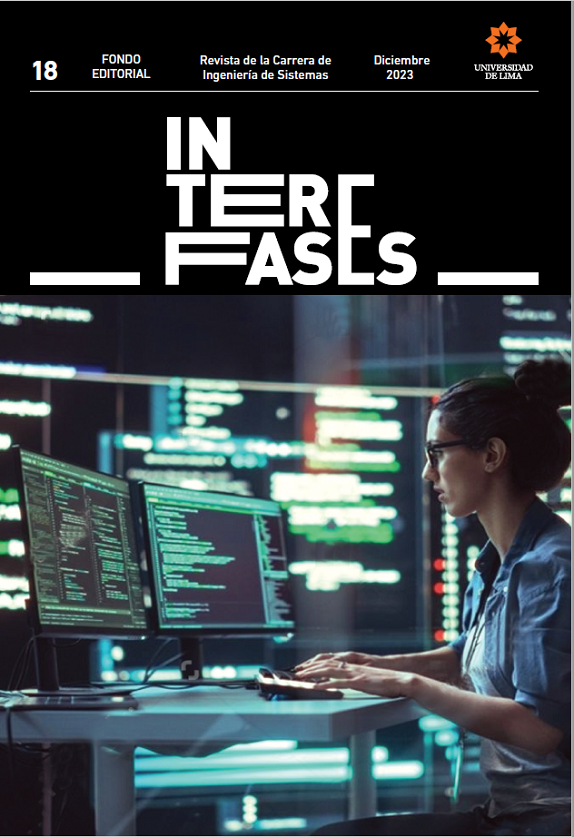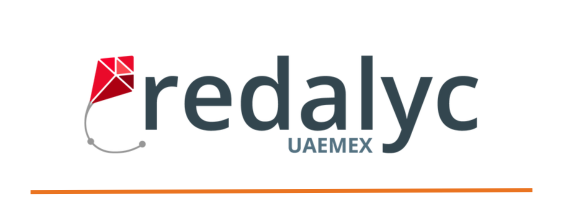Digital socialism and cyber-communism in the Fourth Industrial Revolution
DOI:
https://doi.org/10.26439/interfases2023.n018.6160Keywords:
artificial intelligence, communism, political ideologies, politics, socialismAbstract
Socialism is a political ideology that proposes that the State must have control over the means of production to manage a planned economy. The possibility that this thesis can be materialize has been the subject of debate throughout the 20th century. The Fourth Industrial Revolution includes technologies, such as artificial intelligence or Big Data, that could reopen the debate through the formulation of new models of digital planned economies. This qualitative research provides a brief approach to some theoretical models proposed to update socialism in the Fourth Industrial Revolution. Six new forms of digital socialism are described: the Platform Economy, Socialist Feedback Infrastructure, Algorithmic Central Planning, Cyber-communism, Fully Automated Luxury Communism (FALC), and Open-Loop Economic Planning. nature. The need to continue the analysis of these models to enrich the study of political ideologies and the debate about the future of society is concluded.
Downloads
References
Bastani, A. (2019). Fully Automated Luxury Communism. A Manifesto. Verso.
Bunge, M. (2009). Filosofía política. Solidaridad, cooperación y democracia integral. Gedisa.
Camarinha Lopes, T. (2021). Technical or political? The socialist economic calculation debate. Cambridge Journal of Economics, 45(4), 787-810. doi: https://doi.org/10.1093/cje/beab008
Cockshott, P. (1990). Application of Artificial Intelligence Techniques to Economic Planning. https://www.dcs.gla.ac.uk/~wpc/reports/plan_with_AIT.pdf
Cockshott, P. W. (2017). Big data and super-computers: foundations of cyber communism. 9th International WARP-VASS Vanguard Science Congress. Socialist Models and the Theory. http://paulcockshott.co.uk/oldwp/BigData.pdf
Faye, G. (2010). Archeofuturism. Arktos Media Ltd.
Freeden, M. (1994). Political concepts and ideological morphology. The Journal of Political Philosophy, 2(2), 140-164. https://doi.org/10.1111/j.1467-9760.1994.tb00019.x
Gayozzo, P. (2020). La Cuarta Revolución Industrial: una revolución venidera. Futuro Hoy, 1(1), 11-13. doi:https://doi.org/10.52749/fh.v1i1.2
Gayozzo, P. (2022a). Tecno-nacionalismo y nacionalismo digital en la cuarta revolución industrial. Teknokultura. Revista de Cultura Digital y Movimientos Sociales, 19(2), 213-220. doi:https://doi.org/10.5209/tekn.80449
Gayozzo, P. (2022b). El capitalismo de vigilancia y capitalismo digital en la Cuarta Revolución Industrial. Pensar. https://pensar.org/2022/10/el-capitalismo-de-vigilancia-y-capitalismo-digital-en-la-cuarta-revolucion-industrial/
Gayozzo, P. (2022c). Los retos del humanismo secular en la Cuarta Revolución Industrial. Pensar. https://pensar.org/2022/12/los-retos-del-humanismo-secular-en-la-cuarta-revolucion-industrial/#piero-gayozzo
Helbing, D. (2019). Towards Digital Enlightenment. Essays on the Dark and Light Sides of the Digital Revolution. Springer.
Hirson, M. (2019). State capitalism and the evolution of “China, Inc.”: Key policy issues for the United States. Testimony before the U.S. China Economic and Security Review Commission on “China’s Internal and External Challenges”.
Hughes, J. (2004). Citizen Cyborg. Westview Press.
Jorjani, J. (2017). World State of Emergency. Arktos Media.
Lenin, V. (1983). On State Capitalism During the Transition to Socialism. Progress Publishers.
Li, X., Liu, X., & Wang, Y. (2012). A model of China’s state capitalism. Chinese University of Hong Kong.
Liu, Y., & Zhou, Y. (2021). Territory spatial planning and national governance system in China. Land Use Policy, 102. https://doi.org/10.1016/j.landusepol.2021.105288
Miró Quesada Rada, F. (2001). Manual de ciencia política. Editorial Libros y Publicaciones.
Morozov, E. (2019). Digital socialism? The calculation debate in the age of big data. New Left Review, (116/117), 33-67. https://newleftreview.org/issues/ii116/articles/evgeny-morozov-digital-socialism.pdf
Nicas, J. (2021). Apple’s Compromises in China: 5 Takeaways. The New York Times. https://www.nytimes.com/2021/05/17/technology/apple-china-privacy-censorship.html#:~:text=Apple%20stores%20customer%20data%20on,and%20operate%20the%20data%20center.
Pałka, P. (2020). Algorithmic central planning: Between efficiency and freedom. Law and Contemporary Problems, 83(2), 125-149. https://scholarship.law.duke.edu/cgi/viewcontent.cgi?article=4954&context=lcp
Samothrakis, S. (2021). Artificial intelligence inspired methods for the allocation of common goods and services. PLoS One, 16(9), e0257399. https://doi.org/10.1371/journal.pone.0257399
Saros, D. (2014). Information Technology and Socialist Construction: The End of Capital and the Transition to Socialism. Routledge.
Schumpeter, J. A. (2003). Capitalism, Socialism, and Democracy. Routledge.
Schwab, K. (2016). La Cuarta Revolución Industrial. Debate.
Schwarzmantel, J. (1998). The future of ideology. En J. Schwarzmantel, The Age of Ideology (187-199). Macmillan Press.
Thomas, R. (2020). How AI is Driving the New Industrial Revolution. Forbes. https://www.forbes.com/sites/ibm/2020/03/04/how-ai-is-driving-the-new-industrial-revolution/?sh=3f856515131a
Torpey, J. (2019). From Surveillance Communism to Surveillance Capitalism and Beyond. Forbes. https://www.forbes.com/sites/johntorpey/2019/11/08/from-surveillance-communism-to-surveillance-capitalism-and-beyond/?sh=556410613d33
Von Mises, L. (1968). Socialismo. Instituto Nacional de Publicaciones.
Von Mises, L. (1983). El cálculo económico en el sistema socialista. Estudios Públicos (10), 213-241. https://www.hacer.org/pdf/rev10_vonmises.pdf
Wang, B., & Li, X. (2017). Big Data, platform economy and market competition: A preliminary construction of plan-oriented market economy system in the information era. World Review of Political Economy, 8(2), 138-161. https://doi.org/10.13169/worlrevipoliecon.8.2.0138
Xing, L., & Shaw, T. (2013). The political economy of China state capitalism. JCIR, 1(1), 88-113
Downloads
Published
Issue
Section
License
Authors who publish with this journal agree to the following terms:
Authors retain copyright and grant the journal right of first publication with the work simultaneously licensed under an Attribution 4.0 International (CC BY 4.0) License. that allows others to share the work with an acknowledgement of the work's authorship and initial publication in this journal.
Authors are able to enter into separate, additional contractual arrangements for the non-exclusive distribution of the journal's published version of the work (e.g., post it to an institutional repository or publish it in a book), with an acknowledgement of its initial publication in this journal.
Authors are permitted and encouraged to post their work online (e.g., in institutional repositories or on their website) prior to and during the submission process, as it can lead to productive exchanges, as well as earlier and greater citation of published work (See The Effect of Open Access).
Last updated 03/05/21






